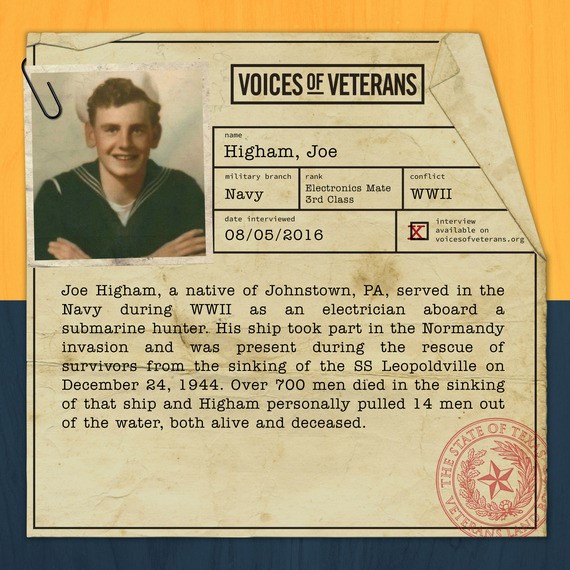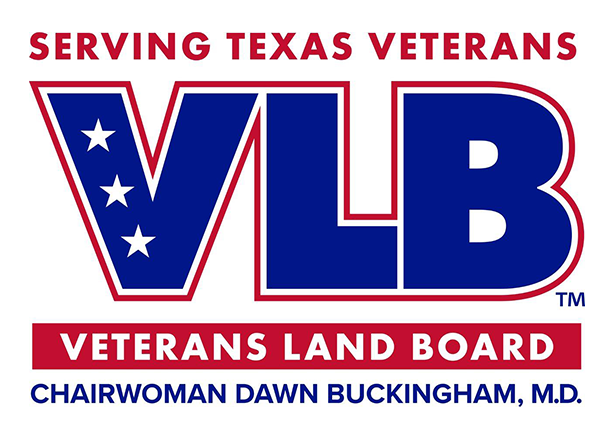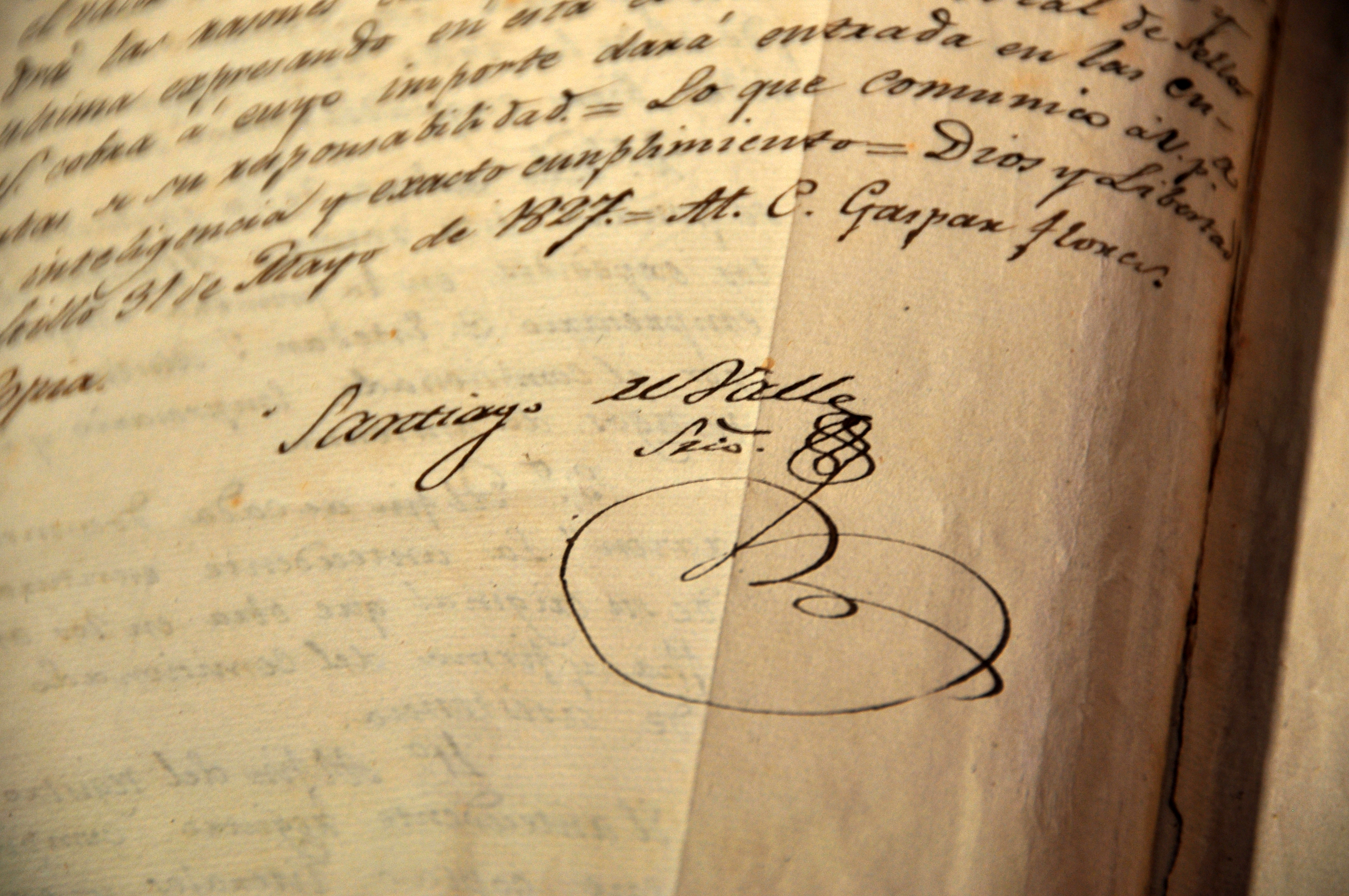Today, Texas Land Commissioner and Veterans Land Board (VLB) Chairwoman Dawn Buckingham, M.D., is proud to introduce the next installment of the series highlighting the VLB's Voices of Veterans oral history program. This week, we highlight the service of Electronics Mate 3rd Class Joe Higham who served in the U.S. Navy during WWII.
Born in Johnstown, PA in 1925, Higham said he started playing football in seventh grade and played through his high school years and earned a scholarship to Penn State University but turned it down.
"I decided to turn that down and, instead, I joined the Navy," Higham said. "I talked to my father about it and he was totally against it but I ended up winning that battle and left after graduation to serve."
Higham said WWII began when he was in high school and even with a football scholarship to Penn State in hand, the pull to serve was far greater than it was to suit up and play football for the Nittany Lions.

"I just felt I had to serve my country, it went beyond a scholarship offer from Penn State and everything, it was just paramount in my thinking," Higham said. "It was just one of those things, I thought, there's a war going on and in all probability, even if I go to Penn State I will probably be drafted after a year or two, so, why not join the service. I decided on the Navy because being on the water was something I enjoyed doing."
Higham said once he joined, he went to Naval Station Great Lakes, the Navy's largest training installation and the home of the Navy's only boot camp. From there, he said he attended radio school at Northwest University before he was sent to New York and assigned to ship Patrol Craft 618, a submarine hunter, eager he said to join the war.
"That was the ship I served on for the Normandy and anti-submarine warfare, that's what we were involved in for two years prior to the invasion," Higham said about anti-submarine warfare. "We worked with a secret ship that a lot of people never knew anything about. We patrolled the North Atlantic as vessels that were somewhat disguised as anti-submarine warfare all the way to Rio de Janeiro."
The PC618 became home for Higham for a couple years and was onboard when they assisted in the invasion of Normandy. He said he was the youngest guy aboard the ship and he learned a lot of things about the Navy from those he served with and while he took all of that in, he also remembers the men who froze in the height of battle.
"We had a crew, and I was the youngest at 18 at the time, and we had a crew that came from all over, including the west coast who had seen action in the Pacific," Higham explained about the makeup of the crew aboard the PC618. "While I learned a lot of about the Navy because of those guys, I did see some men, which was disappointing to me, had been under pressure in the past and I could see it taking over and at Normandy, I saw a standstill on some guys that just froze."
Weeks after the Normandy invasion, Higham recalled spirits were high but that evaporated quickly with the sinking of the SS Leopoldville on December 24, 1944. The rescue mission that followed, Higham personally pulled 14 men out of the water, both alive and deceased.
"That brought everything back from everything before and it was just terrible the way it happened," Higham said about the attack on and sinking of the SS Leopoldville. "Honest to God, when I think sometimes what they did, they had a presence of submarines and they pulled us out, that's what they did, they pulled us out and after that time they moved in and, boom. We just didn't have enough PC's to patrol that area and that was a mistake made by somebody and the enemy took advantage of that."
To listen to Electronics Mate 3rd Class Joe Higham story, click the button below:
RELATED: Voices of Veterans: Bugler 2nd Class Glenn Morgan Shares His Story of Service with the U.S. Navy Aboard the USS Indianapolis
RELATED: Voices of Veterans: Seaman Second Class Lorrie Henderson Shares Her Story of Service During the End of World War II
Veterans can email VoicesofVeterans@glo.texas.gov to tell their stories. Please note that the Veteran must be a resident of Texas at the time of their interview.
Voices of Veterans is a state agency's first Veteran oral history program. It records the stories of Texas Veterans through their time in service and after returning home from combat.
The VLB records interviews with Veterans over the phone or in person. Their interviews are then permanently archived in the Office of Veterans Records at the GLO, where they join the historical documents of other Texas heroes such as Sam Houston, Davy Crockett, Jim Bowie, and William Barret Travis.
Veterans' interviews are also available to researchers, historians, genealogists, and the public. These precious records inspire future generations and remind us of our Veterans' sacrifices.
To listen to the over 500 archived stories of Veterans documented through the GLO's Voices of Veterans oral history program, click the button below:









